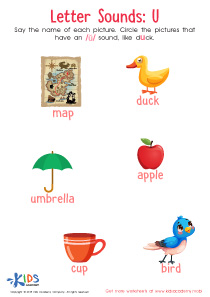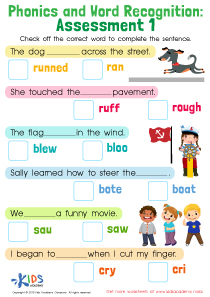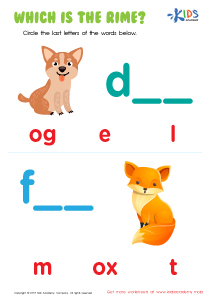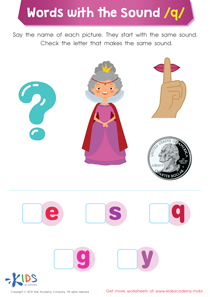Easy Rhyming Worksheets for 3-Year-Olds
2 filtered results
-
From - To
Introducing our Easy Rhyming Worksheets, specifically designed for 3-Year-Olds! Foster your child's love for words with activities that are as fun as they are educational. These worksheets are tailored to the developmental stages of three-year-olds, making learning to rhyme an enjoyable and accessible experience for your little one. With colorful illustrations and engaging tasks, our Easy Rhyming Worksheets will captivate your child's imagination and help build a solid foundation in language skills. Perfect for home or on-the-go learning, these worksheets are your child’s first step into the enchanting world of rhymes. Start the rhyming adventure today!
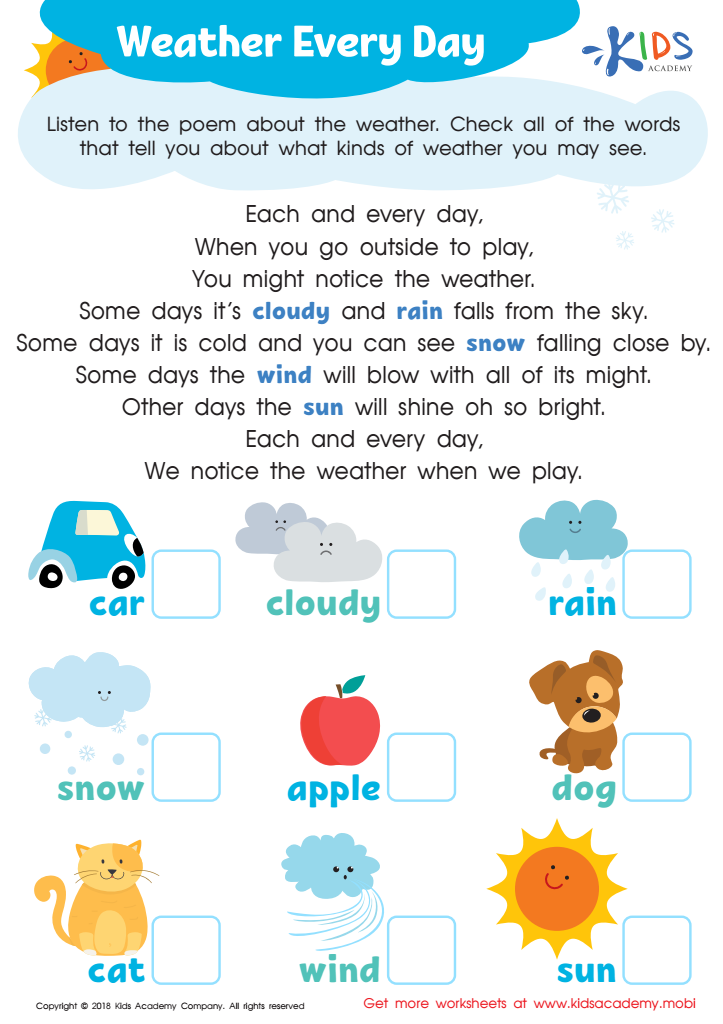

Weather Every Day Worksheet
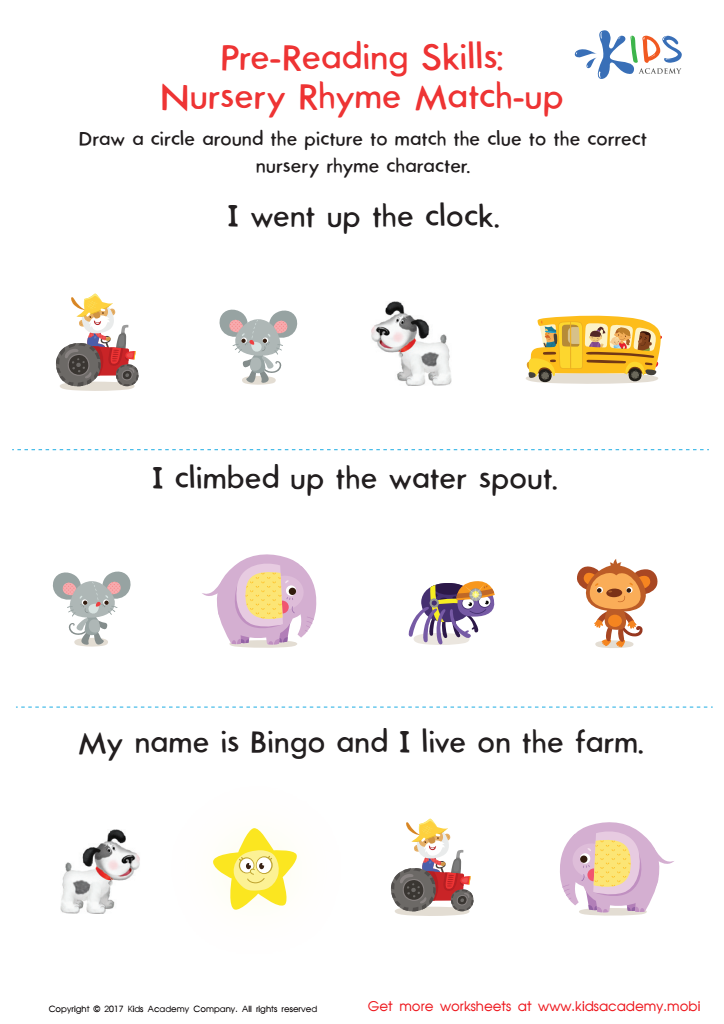

Nursery Rhyme Match–Up Worksheet
Easy Rhyming for 3-Year-Olds is an invaluable educational tool that opens a world of linguistic exploration for young learners. At this formative age, children are sponges, absorbing information rapidly, and the use of rhyming worksheets tailored to their developmental stage fosters early language skills in a fun and engaging way. These worksheets serve multiple purposes: they enhance phonemic awareness, improve listening skills, and boost memory retention, all through the simple, enjoyable activity of rhyming.
Moreover, Easy Rhyming for 3-Year-Olds supports the foundational building blocks of reading. By recognizing rhyme and rhythm, children not only learn to predict word patterns but also gain confidence in their verbal abilities. This early confidence in language skills is crucial for literacy development, making rhyming worksheets an essential part of preschool education.
Additionally, these easy worksheets encourage creativity and imagination. Children learn to play with words, which is a critical aspect of cognitive and social development. They start understanding that language is not only a means of communication but also a source of enjoyment and creativity.
In conclusion, Easy Rhyming for 3-Year-Olds worksheets are not just an educational tool but a catalyst for developing a lifelong love for language and reading in young learners. By incorporating these simple, engaging activities into their learning routine, parents and educators can provide a solid foundation for their children's future academic success.
 Assign to My Students
Assign to My Students









